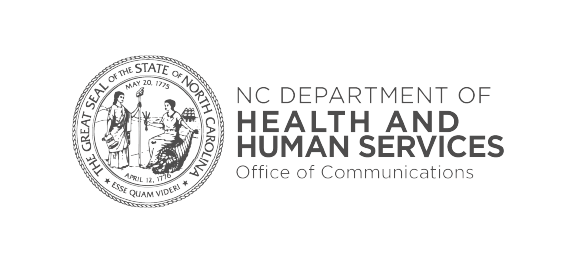What is Schizophrenia?
Schizophrenia is a lifelong chronic brain disorder with distinct episodic phases that affect how people think, act, and feel. Friends, family, and coworkers who can spot some of these phases and symptoms can assist in directing loved ones to effective schizophrenia treatment in North Carolina. Additionally, individuals experiencing symptoms of schizophrenia may recognize changes in their thoughts or behaviors and take the initiative to seek professional help on their own.
Historically, schizophrenia was poorly understood and often attributed to demonic possession or other spiritual explanations. During the Renaissance, however, a shift began as mental disorders came to be viewed through a more naturalistic lens. Schizophrenia today is well understood as a chronic brain disorder with distinct episodic phases. However, it is important to note that each individual’s experience and presentation of these phases or symptoms can vary. Other mental and physical conditions should be ruled out before making a schizophrenia diagnosis, such as substance use, neurological disorders, infections, and other medical illnesses.
Schizophrenia impacts areas of life differently depending on the episode an individual is experiencing. It can also be diagnosed as early as mid-teens to late twenties, as it has impacts on relationships, work, and basic responsibilities of maintaining one’s autonomy. The known phases are as follows:
Phase 1: Prodromal: This phase includes early signs and symptoms of schizophrenia, which may involve noticeable changes in behavior, social withdrawal or isolation, and an increasing preoccupation with unusual or distorted thoughts.
Phase 2 Active (Acute): During this phase, individuals may experience pronounced symptoms of schizophrenia, such as delusions, hallucinations, and disorganized speech. This phase is often the most apparent to mental health professionals, as well as to friends and family, due to the severity and impact of the symptoms.
Phase 3 Residual: In this phase, the acute symptoms of schizophrenia have largely subsided, and the individual begins the recovery process. However, some residual symptoms, such as mild delusions or reduced motivation, may persist even after the more severe symptoms have diminished.
Schizophrenia can disrupt aspects of life in significant ways. Relationships, work responsibilities, and the ability to manage daily self-care. are impacted by symptoms including confusing thoughts and delusions, difficulty with eating and bathing, and challenges stemming from communication issues and isolation. We have made significant progress in early diagnosis and treatment and more than ever before, those with schizophrenia can live and manage their disorder more effectively.
Symptoms of Schizophrenia
Symptoms of schizophrenia will depend on the phase of the mental illness and some early signs may be difficult to detect. It is very important that medical providers first rule out other physiological conditions or mental disorders before creating a treatment plan. If you have heard of those with schizophrenia or seen pop culture depictions, you might be familiar with delusions or hallucinations as a symptom, but in the early stages of the disorder, symptoms are much more subtle.
Positive and Negative Symptoms of schizophrenia are the behaviors that are added (positive) or that are removed (negative) from a person’s normal behavior and perception. Positive symptoms include hallucinations, or seeing, hearing, smelling, or tasting of something not there; delusion, holding false beliefs; disorganized speech, or Alogia, speaking in a way that is either repetitive or using fewer words or answering incompletely or vaguely.
Negative symptoms of schizophrenia include social withdrawal, diminished emotional expression, and a lack of motivation, all of which can significantly impact relationships, work performance, and overall daily functioning. The negative symptoms are the earliest signs, and seeking help during this phase greatly increases the chances of more positive outcomes in treatment.
Other behavioral symptoms are disorganized or catatonic behaviors. Disorganized behaviors are those that are out of social context or norms or that have no purpose or cause. They are a result of internal stimuli, rather than external. Catatonic behaviors include a lack of verbal response, lack of consciousness, and holding a static posture that fights gravity or waxy flexibility. These can be confusing to those caretakers who are looking for answers, as many are unaware of their relation to schizophrenia.
Schizophrenia Assessment Test and Diagnosis
Assessment for schizophrenia is comprehensive and integrates psychological, cognitive, familial, and health data. Professional synthesis of all of these findings, combined with looking at the unique individual’s personal history and how they have presented it, leads to a diagnosis. Like many mental disorders, early diagnosis can increase the chances of an improved outcome and quality of life. Schizophrenia is a lifelong condition, but there are treatment plans that include medical and therapeutic interventions that help sufferers lead normal lives.
Many family members wonder if they or their children have or will develop schizophrenia, because of a genetic link. This is not an absolute. Genetics play a role in the predisposition to schizophrenia, but they are not the sole determinant. Environment, lifestyle, and early childhood factors are equally important in the development of the disorder.
There is an increased risk for first-degree relatives of individuals with schizophrenia to develop the disorder compared to the general population. The general population risk is less than one percent, where first-degree relatives are between six and ten percent, second-degree relatives between two and three percent, and identical twins between forty and fifty percent.
Genetic predisposition may not be a factor where environmental factors of stress, trauma, or prenatal complications, including malnutrition or exposure to toxins do not exist. Other factors that may contribute to the expression of schizophrenia disorder include childhood trauma, abuse or neglect, and substance use. Someone with a genetic predisposition might develop schizophrenia if exposed to environmental stressors, whereas another person with the same genetic profile but fewer stressors might not. If you have access to this genetic information and have experienced what you believe are symptoms, you improve your chances of managing symptoms and phases with a diagnosis and treatment plan.
Do I Have Schizophrenia? Types and Related Conditions
Do I Have Schizophrenia?
If you have experienced symptoms in any phase mentioned above, have a genetic predisposition, and have environmental factors that could lead to the expression of schizophrenia, seek help at a mental health facility with capabilities and a reputation for successful treatment of schizophrenia. It is highly treatable with early detection and diagnosis, and symptoms can be treated medically. Proper education of family members can make a significant difference in both the diagnosis and overall outcomes for patients.
Early Onset of Schizophrenia
The onset of schizophrenia before adolescence is very rare, with less than one percent of children diagnosed with it. Early symptoms are largely physical, with periods of inactivity and delays in development, including walking or talking. In later adolescence, they can have difficulty distinguishing between reality, dreams, and stories. They may also present with auditory hallucinations, seeing things, and experiencing delusions that someone or something is hurting them. Other symptoms can include changes in vision, moods, lack of emotional expression, and agitated behavior followed by periods of listlessness. These behaviors and expressions can be very pronounced or subtle, depending on the individual. It is important to seek medical and therapeutic attention early.
Schizophrenia Treatment Options
Therapies and Interventions
There are very effective medical and therapeutic interventions and modern treatment plans to treat schizophrenia. Therapy, medical interventions, and learning new thinking and awareness techniques are life-changing. Some of the treatment plans that patients find effective include cognitive behavioral therapy, which helps individuals identify and change unhelpful thought patterns and behaviors that can consist of distorted beliefs and spot precursors to hallucinations. Therapies can also challenge delusions, address negative symptoms, and help individuals identify triggers and learn coping skills.
Other therapies include ACT (Acceptance and Commitment Therapy), which consists of mindfulness techniques to keep the individual firmly in the present moment and set goals to improve motivation and quality of life. Education and family therapy are also very important ways to help individuals and families. Learning about triggers, accepting the experiences, and addressing the generational component can help heal individuals and family members who have experienced the negative impacts of loved ones with schizophrenia.
Medical interventions and medications frequently are included in a schizophrenia treatment plan. Finding the proper balance of antipsychotics, mood stabilizers, and other psychiatrist-prescribed medications is constantly evolving, individually and in the field of psychiatry. Apogee plans are highly personalized, closely supervised, and administered in combination with behavioral therapies to ensure the best possible patient outcome.
Lifestyle changes can also play a vital role in supporting the management of schizophrenia, including maintaining a stable sleep routine, avoiding substance use, eating a balanced and healthy diet, and joining a network of individuals who are also managing symptoms of schizophrenia. Support groups can be especially helpful for both families and individuals. Apogee Behavioral Medicine can direct you to groups in your area.

Same Day Appointments Available
Apogee Behavioral Medicine offers same-day appointments and telehealth to help guide you through both behavioral and medical interventions if you or someone you love is suffering from schizophrenia.

Why Choose Apogee Behavioral Medicine for Schizophrenia Specialists?
Apogee Behavioral Medicine has decades of expertise and is on the front lines of the most modern treatment plans for schizophrenia. We are committed to a deeply collaborative approach to patient care with psychiatrists working with MDs and therapists towards the best treatment plan for patients. It does not just end with one collaborative plan; we continually provide individualized care that adapts to the unique stages of one’s disorder. We are with you, your family, and your network every step of the way.
Our care is accessible and timely. We offer same-day appointments and telehealth options, ensuring that you feel supported. Apogee Behavioral Health accepts most insurance, and we are a preferred choice in North Carolina for the treatment of schizophrenia.
We understand the stigma around schizophrenia and how scary the prospect of this type of diagnosis can be for individuals and their families. Early intervention, education, and awareness of the effectiveness of treatment can significantly improve outcomes for both individuals and families. Living with schizophrenia is not only possible but probable with proper care. At Apogee, we are committed to providing timely and expert care, from comprehensive diagnosis to diverse treatment options. Take the first step towards effective management of schizophrenia disorder and healing yourself and your family with Apogee as your trusted and compassionate partner.
FAQs About Schizophrenia
Schizophrenia does not have a cure. However, it is very manageable with proper medical and therapeutic interventions.
Genetics and environment both play a part in the expression of schizophrenia. If you have first-degree family members with schizophrenia or second-degree, your chances are higher, however many environmental factors including maternal health, abuse, and trauma play roles in its expression.
Schizophrenia requires a comprehensive diagnosis that takes into account an individual’s unique history, family tree, physiology, and background. Additionally, cognitive assessments and physical testing are also factors in a diagnosis.
Apogee Behavioral Medicine does not currently provide inpatient options, but we can refer patients out in the North Carolina area.
Insurances Accepted
















Call us at (855) 409-9002 to see if you are covered.
Insurance plans may vary by state and are subject to change.
